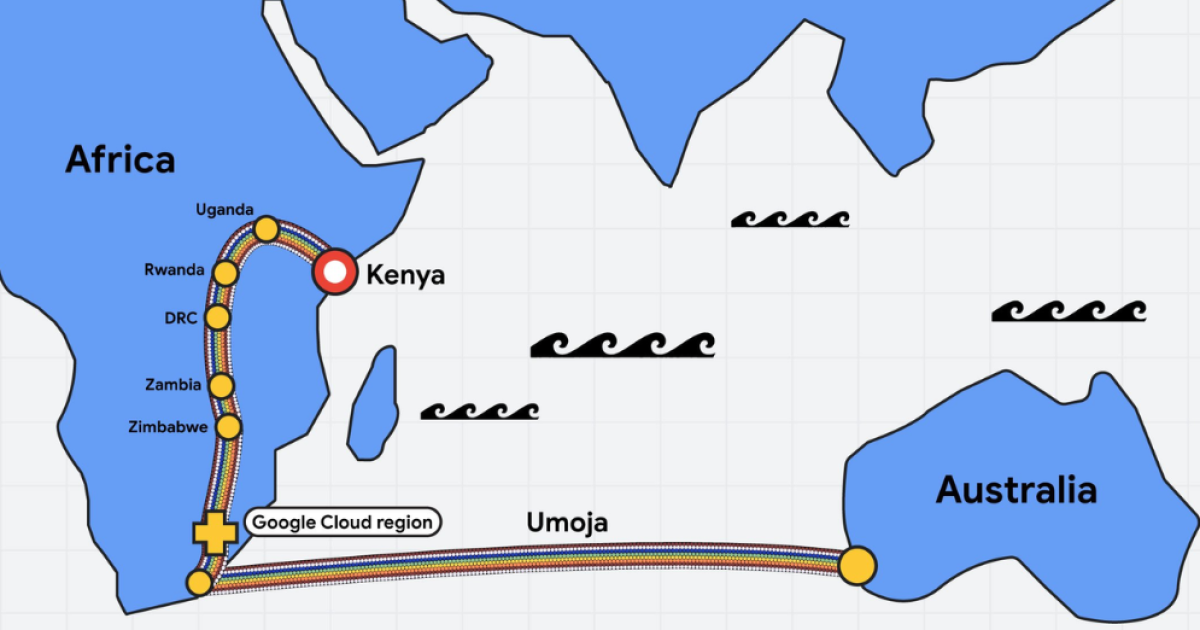The Umoja cable route will be anchored in Kenya and pass through several Africa countries before crossing the Indian Ocean from South Africa to Australia.
The cable route will also be connected to the new Google Cloud region in Johannesburg, which was announced by the hyperscaler in January 2024.
On its path from Kenya to South Africa, the route will include terrestrial fibre that passes through Uganda, Rwanda, Democratic Republic of the Congo, Zambia, Zimbabwe.
Umoja’s terrestrial path was built in collaboration with Liquid Intelligent Technologies, and will include access points that allows other countries to take advantage of the network.
Umoja joins Google’s existing subsea project, Equiano, as part of its Africa Connect project.
Equiano is a subsea cable route that travels along the West Coast of Africa.
Google says the new project is critical to maintaining a resilient network for Africa, which has historically experienced high-impact outages.
This year alone, cable cuts in the red sea and off the coast of Cote D’Ivoire, have caused mayhem to Africa’s internet connection.
Equiano was not impacted by these cuts, and as reported by Capacity in April, came to the rescue as one of only West Coast cables still able to carry capacity from Africa to Europe and the rest of the world.
Kenya’s president Dr. William S. Ruto praised the new project from Google in light of the recent disruption.
“This initiative is crucial in ensuring the redundancy and resilience of our region’s connectivity to the rest of the world,” he said.
“By strengthening our digital backbone, we are not only improving reliability but also paving the way for increased digital inclusion, innovation, and economic opportunities for our people and businesses,” Ruto added.
Strive Masiyiwa, chairman and founder of Liquid Intelligent Technologies said that the terrestrial portion of the route can carry thousands of times more traffic than currently reaches major Africa cities such as Nairobi, Kampala, Kigali, Lubumbashi, Lusaka, and Harare.
“Nairobi, Kampala, Kigali, Lubumbashi, Lusaka, and Harare will no longer be hard-to-reach endpoints remote from the coastal landing sites that connect Africa to the world,” he said.
Roderick Beck, who sells Capacity on subsea cables, said that Google is leading the charge in terms of providing Africa with connectivity, while competitors at Amazon and Microsoft are lagging behind.
“I expect the latter two to make announcements in the coming months to counter Google’s media buzz,” he said in a LinkedIn post.

